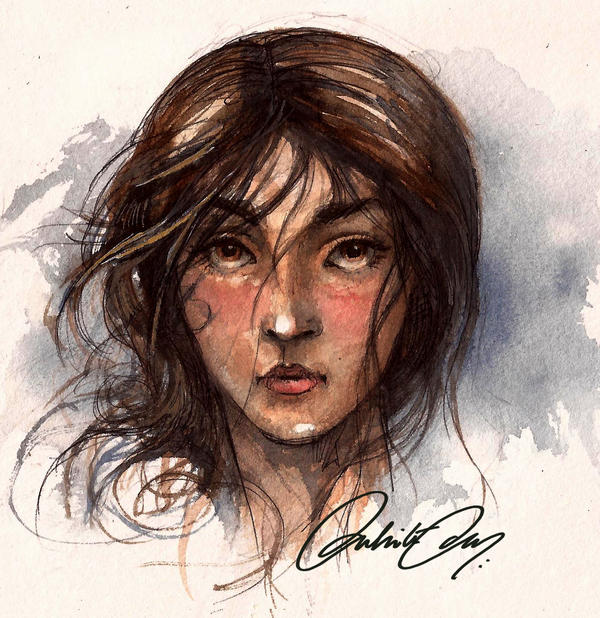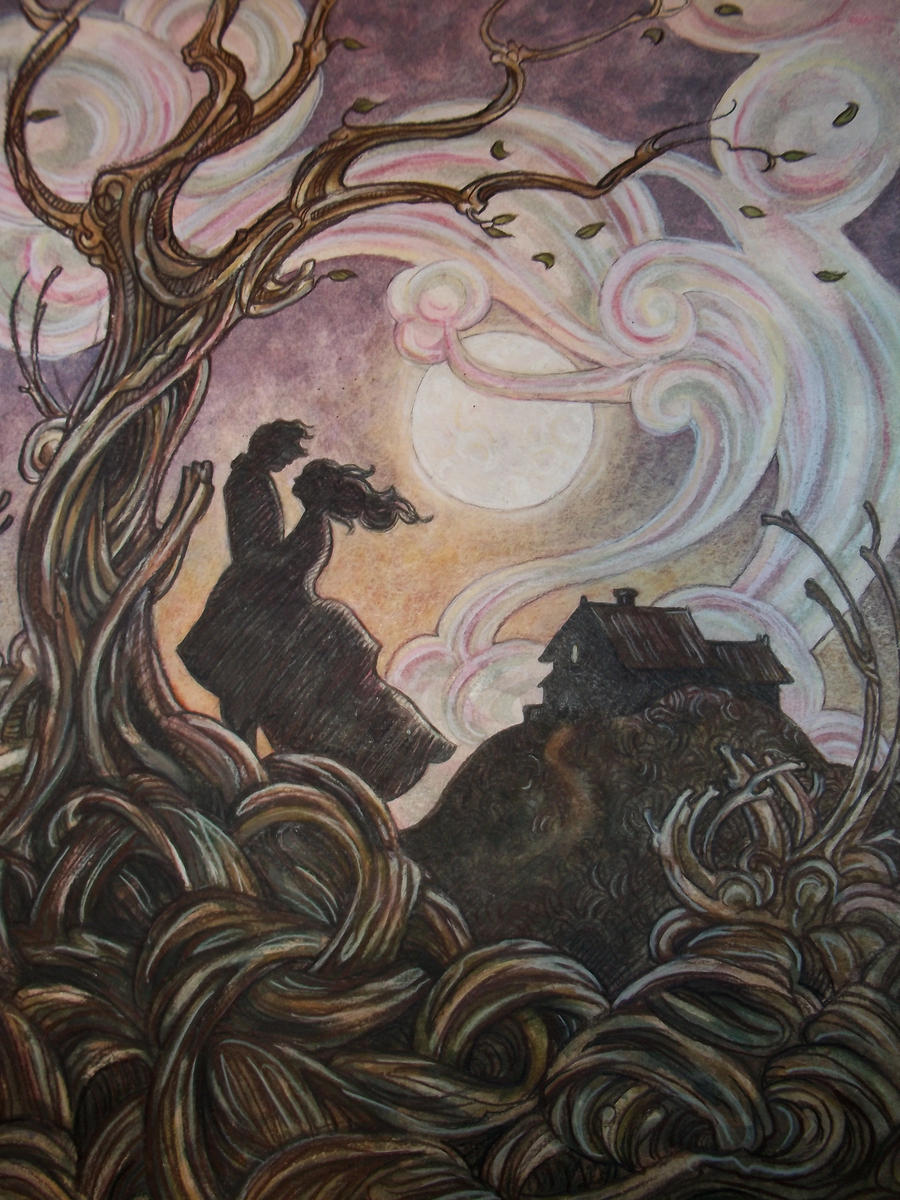A hundred and ninety-eight years ago today, Emily Bronte was born. She would die not long after – just a few months past her 30th birthday. But she gave the world – and me – something that we should be eternally grateful for. The novel Wuthering Heights.
In a world which celebrates material achievements and makes Gods of the rich for no other reason than their ability to extract money from the earth, atmosphere or from human beings, it might not be a bad idea to remind ourselves that a parson’s daughter from a remote village in northern England, who only ever wrote one book, achieved more lasting fame than John Jacob Astor.
Who is Astor, you ask? Oh, just the richest man in the world in the year 1848, the year the parson’s daughter died.
I wrote this as a tribute to the book and the novelist on this day last year.
“Let me in.”
It was a disembodied,
child-like voice. Definitely a girl's though. Wasn’t the first time I was
hearing it either. In fact, she had been making her plaintive plea for a while
now. How long had it been – how long had I ignored her?
“Nine years,” she
said, anticipating my thoughts, as she often did. “Nine years you've left me
out in the cold.”
“Nine? Not that
many, surely,” I smiled weakly. “And you haven't been out in the cold or...”
“A book unread is
a book out in the cold, Jormund,” she laughed her saucy laugh.
“Well nine years…I
do feel…surely you’re mistaken.” I said. She was mistaken, wasn’t she? I remembered her face, her form, her words as clearly as though I had seen her yesterday.
“I know you better than you
know yourself, Jormund. Do you remember why you sought me out, then? Wasn't it
for a grade? A grade to shore up your sinking – what do you call it? A GPA? You
wrote about me and got the grade you wanted. Your first year in University.”
I had heard
enough. I opened the window.
“Come
in! Come in!” I sobbed. “Cathy, do come. Oh, do—once more!”
 |
| (c) Duhinta Das |
I can't recall how often I've
read Wuthering Heights. Deuce take it, I can’t even recall how old I was
when I first read it. It was a book that had belonged to my uncle, with the
glowing golden stamp of the University of Mumbai on it, already disintegrating
in my hands, the pages yellowed with age.
Too young to understand most
of the words, too impatient to savour the flavour of Yorkshire's moors that
Bronte brought so vividly to life, too stupid to understand the themes it
brought forth, I nonetheless devoured it impatiently and when it was over, I
was conscious of a feeling of loss, as if this was a book I could read for ever,
that I never wanted to end.
Well, I did read it again.
And again. And again. Each time, I laughed with Catherine and Heathcliff as
they ran through the moors, I cried for Isabella Linton as she sped to her
foolish doom, I reflected sadly with Nelly Dean on Hindley Earnshaw's wasted
life, I felt sorry for Edgar Linton, ever to enjoy only a pale reflection of
the all-consuming passion his wife held for her lover, and then I grieved for
the younger Catherine as she knowingly stepped into the abyss prepared for her
by her father's enemy.
I have heard people call Wuthering
Heights just another love story. I'm told they've made it a part of the
syllabus at schools and colleges, thus condemning it to the eternal hatred of
generations of students.
It's about as much a love
story as the Taj Mahal is just another tomb, or Everest is just another
mountain. I am not even sure whether or not a book that's meant to be experienced, to be lived,
to be understood, should ever be tried to be taught.
So I close the pages again on
Catherine. I hope it's not another nine years before I let her in again. But it
doesn't matter, and she knows it. Here, and here, in whichever
place the soul lives, Wuthering Heights will always be a part of me.
[Anyone interested in reading the Book Report I wrote on Wuthering Heights for which I got an A Grade in my first year of B-school in a subject called OB-I, can click here. I almost never actually praise myself, but trust me, you will NOT regret reading this one]
 |
| (c) Muirin |
[Anyone interested in reading the Book Report I wrote on Wuthering Heights for which I got an A Grade in my first year of B-school in a subject called OB-I, can click here. I almost never actually praise myself, but trust me, you will NOT regret reading this one]
 |
| (c) Leonnack |












